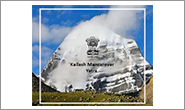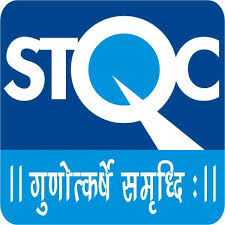Ambassador Bambawale's interview to Global Times
Global Times: How do you feel about being appointed as India's new Ambassador to China?
Ambassador Bambawale: India and China are ancient civilizations. In the 21st century, we have re-emerged as major powers in the world from a geo-economic and geo-political perspective. The India-China relationship is important to both countries. Therefore, it is a great honor to be appointed as India's Ambassador to China. Naturally, there are also great responsibilities which go with this position. I am here to work with the Chinese people to move the India-China relationship forward.
Global Times: Last year's Doklam standoff has negatively impacted Sino-Indian ties. It is a very unpleasant memory. Although it has passed, it has made a deep impact. Some people believe the strategic trust between China and India has been further weakened by the incident. Do you agree? Can you tell us how you would like to see the development of bilateral relations as ambassador?
Ambassador Bambawale: As I said earlier, India and China are ancient civilizations. We have had exchanges and interactions over several centuries. For the bulk of this period, India and China have interacted peacefully with each other. We have not merely exchanged goods but also ideas. I look at the Doklam standoff from such a long-term perspective. When you do so, the Doklam standoff is just one event in a much longer term history. I believe that you are blowing it out of proportion. The people of India and China and our leaders are experienced enough and wise enough to overcome such momentary hurdles in our relationship.
I believe that in the post-Doklam period, India and China need to be talking to each other and conversing with each other much more than in the past. This should be done at many different levels, including at the leadership level, the official level and the people-to-people level. We need to be talking and communicating with each other much more than we are doing. Such communication should be frank, candid and open. If we are able to do so successfully, we will understand each other much better and we will build trust and confidence in each other. With enhanced trust and understanding will come a stronger partnership between India and China. I would like to say that India and China are partners in development and progress. We are not rivals.
In our conversations and discussions, it is important to talk to each other and not talk past each other. We must be sensitive to the other side's concerns. Our interaction must be based on equality and mutual benefit. Also, in the India-China border areas, especially at some sensitive points, it is important not to change the status quo. We need to be clear about this.
Global Times: As India's Ambassador to China, what do you plan to do to enhance mutual strategic trust? To be specific, what are the options for the two sides to improve relations in 2018?
Ambassador Bambawale: As I have said earlier, we should have more conversations, discussions, exchanges and cooperative ventures. This should be at the leadership level, at the official level and at the people-to-people level. In line with this thinking, India and China should work together in 2018 to have more summit-level meetings and official meetings. In addition, we should enhance exchanges of parliamentarians, business persons, journalists, academicians, students, sportspersons and film makers. We also need to enhance contacts and exchanges between military personnel of our countries. Yet another way to enhance understanding of each other is for us to increase tourism in both directions. China must import more Bollywood films so as to understand India better. This is my broad agenda for 2018. It is a very full agenda.
Global Times: It is natural for countries to have different interests and sometimes contradictions, but it's also important that countries cooperate, especially major countries. What do you think are the common interests between China and India? You are an expert in Asian affairs, which have seen quite a few conflicts recently and there have been complicated relations among different countries. Do you think India and China, as two influential countries in the region, should look forward and engage in greater cooperation?
Ambassador Bambawale: You are correct. India and China share many common interests and goals. For example, both countries are currently focused inward on ensuring their own economic development and social progress. China is further down this road than India. However, I believe, there is a lot that we can learn from each other. For example, Prime Minister Modi has launched a 'Make in India' program for increasing the share of manufacturing in our GDP. We would like to learn from China how to do so and how to position ourselves within global value chains. You are aware that Chinese telecom companies have been very successful in India. We would like them to manufacture at least some of their products in India. Similarly, India has embarked on a program of 'Smart Cities'. Do you think it would be possible for Chinese companies to assist us in one or two of these new 'Smart Cities'? Perhaps, some Indian IT firms can assist with China's plans on big data.
India and China also have common positions on many international and global issues. The prime example is that of climate change. We have been working together on this subject in the past and under the new international circumstances it is especially important that we continue to work together. I would also like to avail of this opportunity to congratulate the city authorities of Beijing for the clean air that we have been experiencing in the city this winter. Again, both India and China are threatened by international terrorism. We must continue to work in tandem in our counter-terrorism efforts. I would even suggest that we need to expand our cooperation in counter-terrorism. India and China have benefited from globalization which provides a common platform for both our countries. We both should ensure that the global values and rules which have benefited us should continue to be upheld and promoted. Global rules of interaction among nation states must be maintained. So, you can see that there are many broad areas where India and China have similar if not identical interests. Let us work together on these issues for the benefit of our people.
Global Times: Many Chinese people don't understand India's anti-China mentality. They think the two countries share more similarities as the world's two biggest developing countries. How would you explain India's anti-China mentality?
Ambassador Bambawale: I don't know where you have obtained this understanding. If you travel to India and meet the common people in our cities and villages, you will come to know that they do not have an anti-China mentality. In fact, the people of India have great admiration for what China has achieved in economic development over the past four decades. Similarly, when I meet hundreds of Chinese people, I can feel their warmth and friendship. It is because of these positive feelings that we have two successful examples of India-China cooperation last year. The first is the success of the Bollywood movie Dangal in China. The second example is the success of Chinese Xiaomi company in becoming the largest mobile telephone supplier in the Indian market.
However, there are a few issues about which, we in India, have been focusing attention on. The foremost is the large and growing trade deficit we face with China. In 2017, the deficit for India is likely to be US$ 55 billion. India sells pharmaceuticals and IT products all over the world but not in China. Why? For 20 years, we have been asking for the Chinese market to be opened for our pharmaceutical and IT products and services. To no avail. What do we make of this? What conclusions should we draw? We should discuss such issues frankly but also take steps to resolve them.
Secondly, the China-Pakistan Economic Corridor passes through Indian-claimed territory and hence violates our territorial integrity. This is a major problem for us. We need to talk about it, not push it under the carpet. I believe, the more we talk to each other, the easier it will become to resolve problems. Also, please don't forget, there are many subjects - the vast majority of issues - on which we are already working together and where we can expand cooperation.
Global Times: China and India enjoyed ties for decades before bilateral relations underwent recent twists and turns. Until now, many Chinese feel good about that history, on which I believe you share the same memory. How do you view the future of China-India ties?
Ambassador Bambawale: You are absolutely right. I have repeatedly spoken of India and China as ancient civilizations which have enjoyed exchanges and interactions over centuries. Do you know the Tang Dynasty monk Xuan Zang is very well known in India even today? We read about him in our history books and there is admiration for the fact that he spent many long years in India learning and understanding Buddhism. Similarly, Damo or Bodhidharma, as we call him, is extremely well known in China as the Buddhist monk from India who brought with him the idea of 'Chaan' Buddhism. Let me clearly say to you and your readers that India, today, is focusing all its energies on economic development, social progress and national transformation. As a neighbor, we would like China to assist us in our efforts. India and China have similar approaches on many regional and global issues. Yes, we have some differences. We need to maturely work together. I believe the people of India and China have the wisdom to do so. Therefore, I am optimistic about the future of India-China relations.
***





























